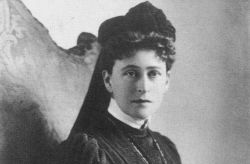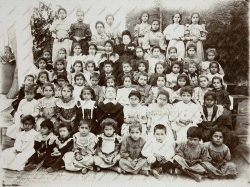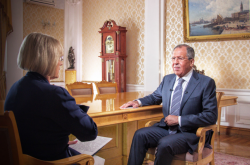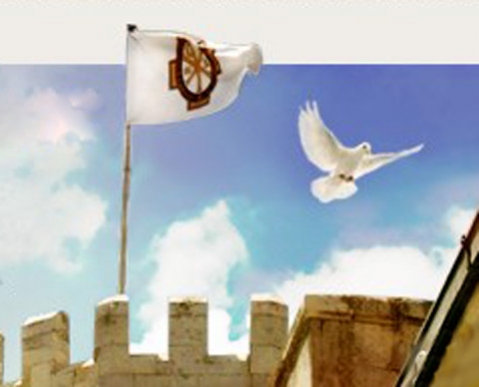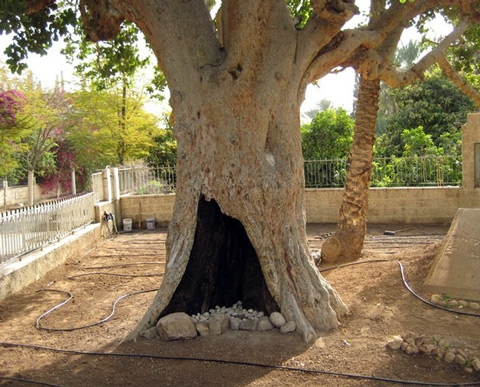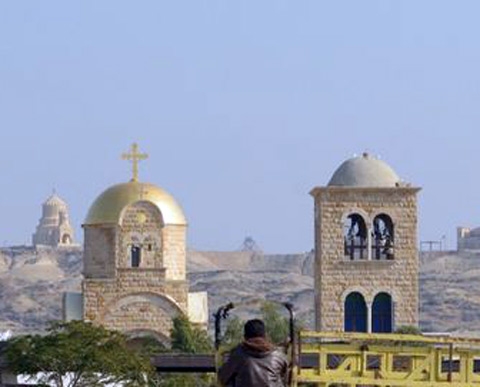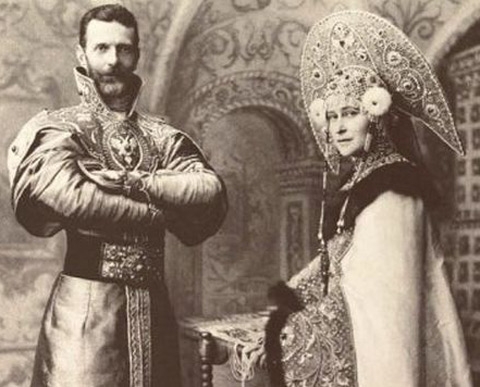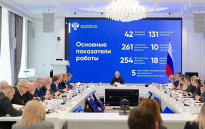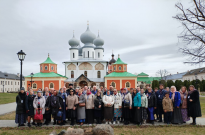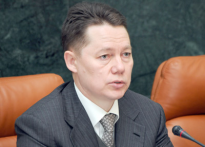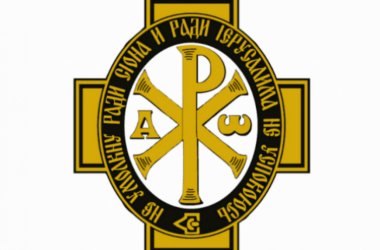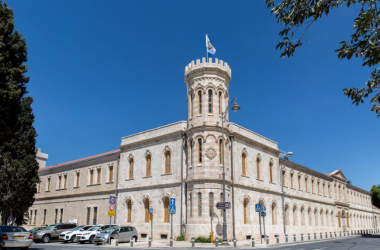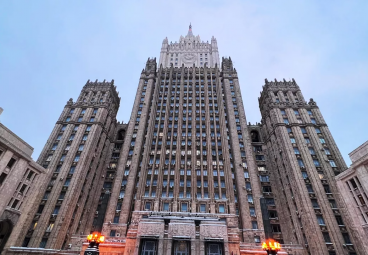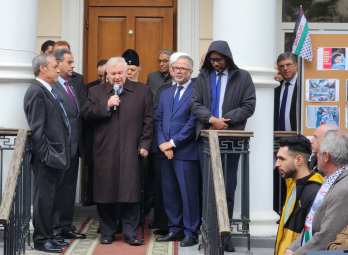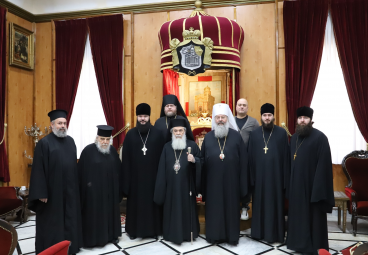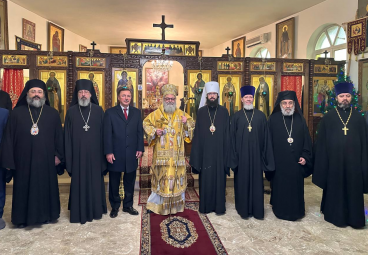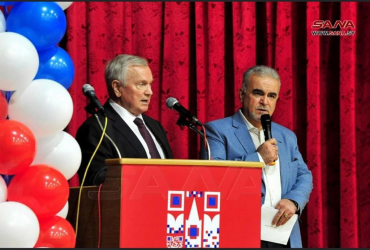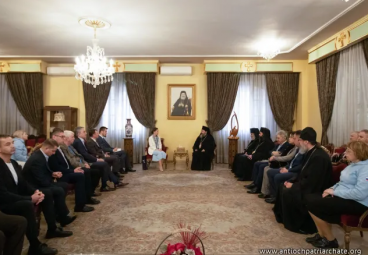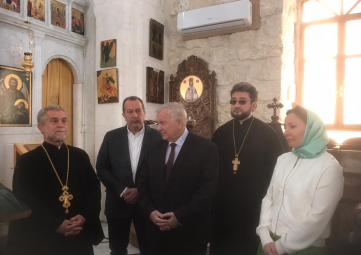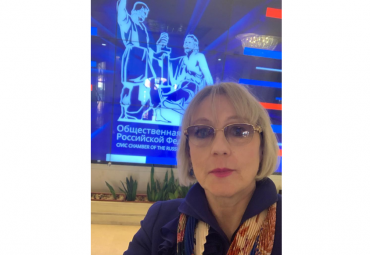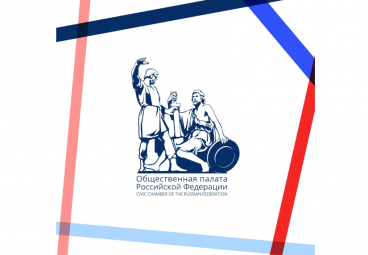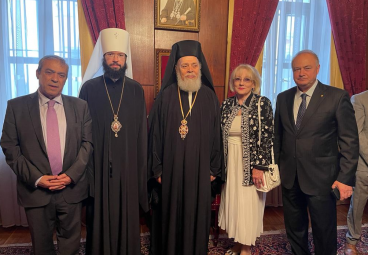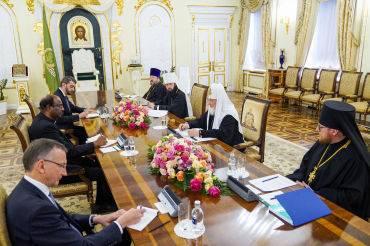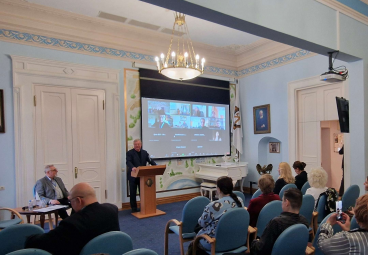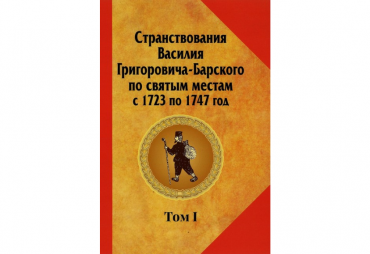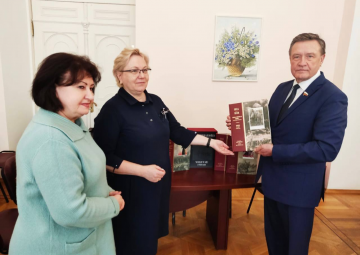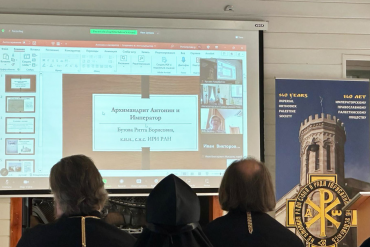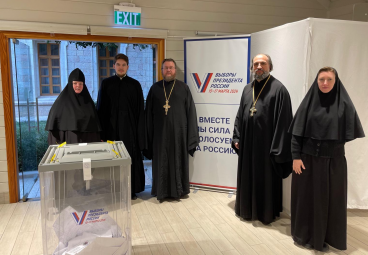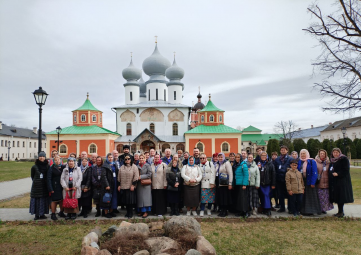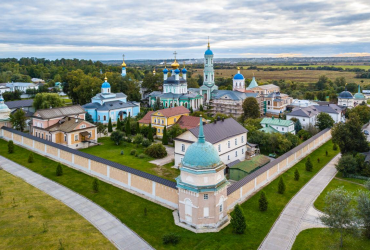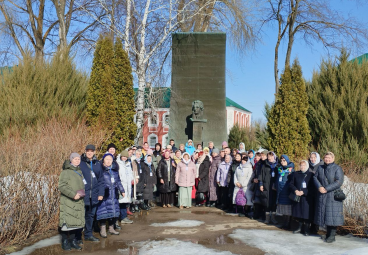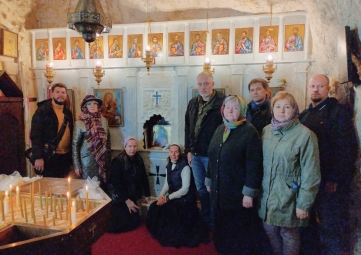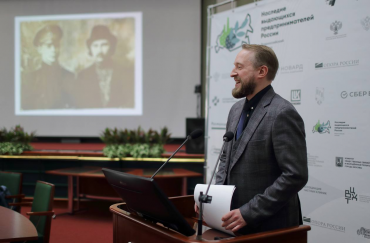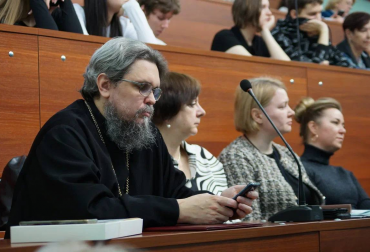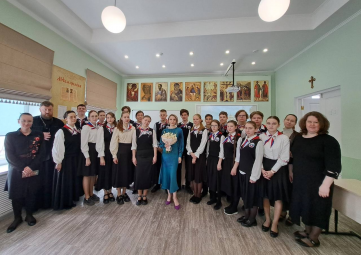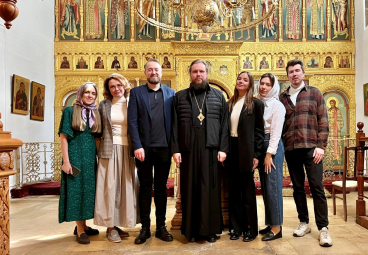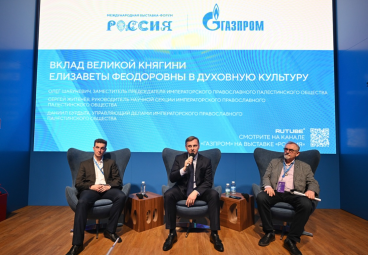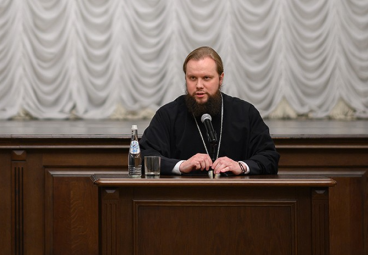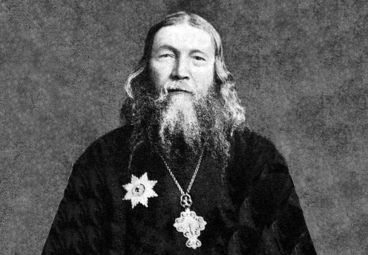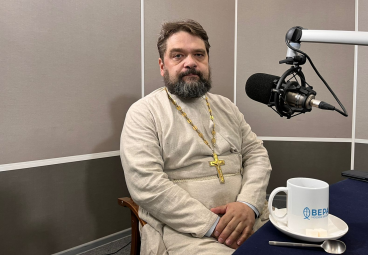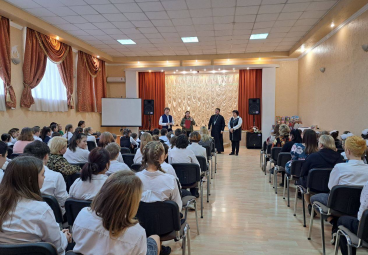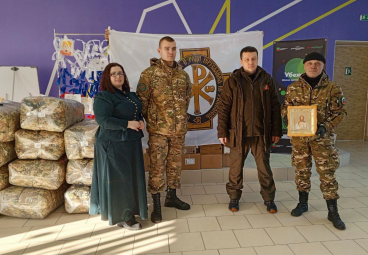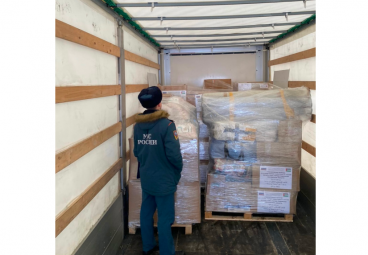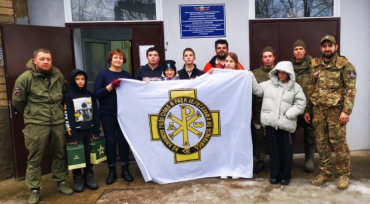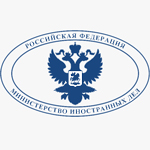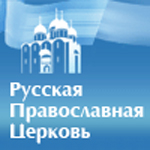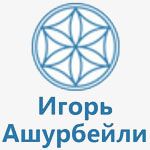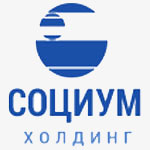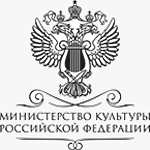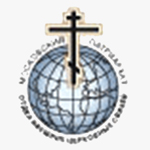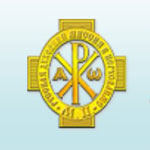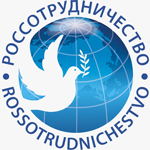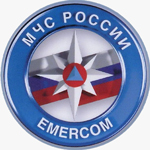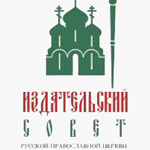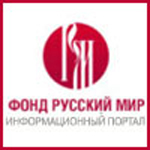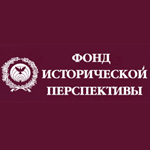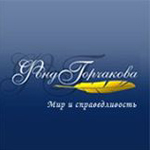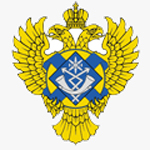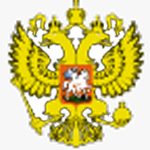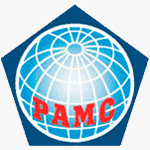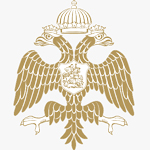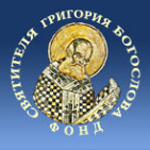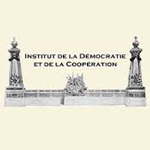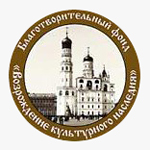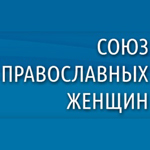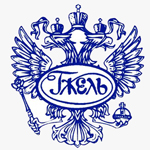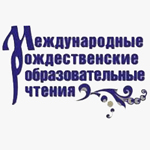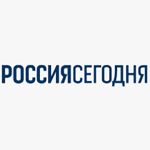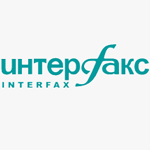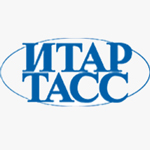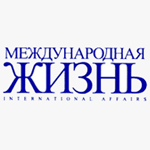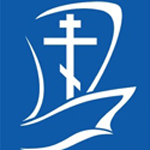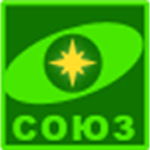CONSTITUTION OF THE IMPERIAL ORTHODOX PALESTINE SOCIETY International Public Organisation (established 1882)
FOR ZION’S SAKE I WILL NOT KEEP SILENT,
AND FOR JERUSALEM’S SAKE I WILL NOT REST,
(Isaiah 62:1)
The Constitution of the Imperial Orthodox Palestine Society (hereinafter, ‘the Society’) was approved by the edict of His Imperial Majesty Alexander III on May 8, 1882 and ratified by the meeting of the founding members which took place on 21 May, 1882 in Saint-Petersburg.
Subsequent amendments and additions were introduced by the Society member’s meetings on 22 August 1919, 9 December 1922, 29 October 1925, 10 February 1930, 12 March 1951, 25 June 1986, 19 April 1989, 9 December 1992, 10 October 2002, 14 June 2007, 12 June 2008, 10 June 2010 and 4 June, 2012. The Constitution was also amended at the 3rd Conference on 3 June, 2014 and the 4th Report and Election Conference of 2 June 2017.
1. GENERAL PROVISIONS
1.1. The Imperial Orthodox Palestine Society International Public Organisation (hereinafter, ‘the Society’) is a membership-based international non-governmental public self-governing organisation which carries out its activities in accordance with the Constitution of the Russian Federation and laws of the Russian Federation and the countries where its divisions are located, generally accepted norms and principles of international law, international treaties of the Russian Federation and this Constitution.
1.2. The Society is the lawful successor of the Imperial Orthodox Palestine Society established by the meeting of its founding members which took place on 3 June (21 May according to the Julian calendar) 1882 in Saint-Petersburg.
1.3. By resolution of the Society’s general meeting on 12 June 2008 the name of the Society was changed from ‘the Imperial Orthodox Palestine Society International Non-Governmental Public Organisation’ to ‘the Imperial Orthodox Palestine Society International Public Organisation’.
1.4. The full official name of the Society in Russian is ‘Международная Общественная Организация «Императорское Православное Палестинское Общество’.
1.5. The abbreviated official name of the Society in Russian is МОО «ИППО».
1.6. The full official name of the Society in English is ‘The Imperial Orthodox Palestine Society International Public Organisation’.
1.7. The abbreviated official name of the Society in English is ‘IOPS’.
1.8. The Society is a legal entity under Russian law from the moment of its state registration pursuant to the procedure established by law.
1.9. The Society was established with no limits as to its duration .
1.10. The Society’s activities are based on the principles of voluntary participation and equality of its members, self-governance, and legality. The Society’s activities are subject to public disclosure, and information on its constitutional and programme documents is to be made generally available.
1.11. The earning of profit is not the main goal of the Society’s activity. Any profit earned shall be used exclusively for attaining the Society’s goals set out in this Constitution and shall not be distributed among the Society’s members.
1.12. The Society has separate property in its ownership and is liable for its obligations to the extent of such property, may purchase and exercise in its own name any property or personal non-property rights, enter into contracts (make transactions) and act as a plaintiff or a respondent in court. The Society, in the exercise of its ownership rights, may own, use and dispose of its own property as it sees fit for the attainment of the goals set out in this Constitution.
1.13. The Society’s members shall not retain their title to the property transferred by them to the Society’s ownership, including membership fees, and shall not be liable for the Society’s obligations, nor shall the Society be liable for the obligations of its members.
1.14. The Society may, as appropriate, open current or other accounts with banks in the Russian Federation or beyond.
1.15. The Society shall maintain its own book-keeping.
1.16. The Society shall provide assistance to the Russian Orthodox Church in her spiritual and peaceable ministry within the Russian Federation, the Middle East, including the State of Israel and the State of Palestine, countries of the Mediterranean and other parts of the world.
1.17. The Society shall conduct its international activities in accordance with Russian Federation law, including the Russian Federation’s international treaties, and with international law.
1.18. The Society shall conduct its activities in the Russian Federation, the State of Israel, the State of Palestine and other foreign countries where the Society maintains its divisions.
1.19. The Society shall set up its divisions, such as chapters, branches, representative offices and entities, in the Russian Federation and abroad.
1.20. In its activities abroad the Society shall be guided by the laws in effect in the countries where it conducts its activities or where Society-owned assets are located. In case of internal conflict or discrepancies between the laws of the country of its presence, the Society shall conduct its activities in keeping with international law.
1.21. The Society’s location is 3 Zabelina Street, Bldg 2, Moscow, Russian Federation.
2. THE SOCIETY’S INSIGNIA
2.1. The Society has its own insignia, as well as a round seal with its full name in Russian and English, stamps and letterhead paper. Third parties are not allowed to use the Society’s insignia without a relevantly written consent of the Society’s governing bodies.
2.2. The Society’s insignia includes the Society’s emblem, banner, pennant, and motto. The Society’s insignia may be in colour or black and white.
2.2.1. The Society’s emblem features an oval golden shield, with a smaller white oval inside on which two big golden Russian letters X and P are superimposed on one another, with P on top, and with the Greek letters ‘alpha’ and ‘omega’ on the left and right, respectively. Around the edge of the shield inscribed in gold on a black ribbon are the words: ‘FOR ZION’S SAKE I WILL NOT KEEP SILENT, AND FOR JERUSALEM’S SAKE I WILL NOT REST’ Projecting from the upper, lower, left and right sides of the shield, symmetrically to its vertical and horizontal axes, are the golden extremities of a cross.
2.2.2. The Society’s banner is a white sheet with the Society’s emblem in the centre.
2.2.3. The Society’s pennant has the form of an isosceles triangle whose apex has a tassel in the Society’s colours (black and gold). Around the perimeter of the pennant runs a lace ribbon (black with gold) ending in a pendant. The white background of the pennant has the Society’s emblem in the centre.
2.2.4. The Society’s motto is ‘Preserve Russia in the Holy Land!’.
3. GOALS, OBJECTS, AREAS AND TYPES OF THE SOCIETY’S ACTIVITY
3.1. The object of the Society’s activity is to attain its constitutional goals in accordance with applicable laws.
3.2. The Society’s goals are to:
3.2.1. Preserve the Orthodox cultural heritage and promote ties of the Russian Federation with the Middle East and Mediterranean countries, and other countries of the world.
3.2.2. Assist the Russian Orthodox Church in its spiritual and peace-keeping ministration in the Russian Federation, in the Middle East, countries of the Mediterranean and other parts of the world.
3.2.3. Contribute to the promotion of Orthodox pilgrimage to the shrines of universal Orthodoxy, the Middle East, countries of the Mediterranean and other parts of the world.
3.2.4. Assist in the charitable and health-care activities in the Russian Federation, the Middle East, countries of the Mediterranean and other parts of the world.
3.2.5. Study and preserve the historical and cultural heritage, assist in the restoration and maintenance of Orthodox cultural monuments located in the Russian Federation and abroad.
3.2.6. Assist in the creation of the pilgrimage infrastructure, participate in the construction and restoration of pilgrimage, cultural, research and information centres in the Russian Federation, the Middle East, countries of the Mediterranean and other parts of the world.
3.2.7. Establish and promote cultural, scientific, spiritual, public and other relations with the peoples of the Middle East, the Mediterranean and other parts of the world, and also with foreign and international associations, including specialized United Nations institutions.
3.2.8. Support Christians and Christian communities in the Middle East, the Mediterranean and other regions where they are subject to oppression and violation of their fundamental rights. Contribute to the preservation of Christian presence in the Biblical region, and participate in the promotion of inter-religious dialogue and inter-confessional harmony.
3.3. In order to attain its constitutional goals in accordance with law the Society carries on the following activities:
3.3.1. Participation in the construction of facilities related to the implementation of the Society’s goals in the Russian Federation and abroad.
3.3.2. Research and educational activities in the areas of history, spirituality and culture of the countries of the Middle East, the Mediterranean and other parts of the world.
3.3.3. Organisation of scientific research, conferences, and expeditions in the domain of social and human sciences.
3.3.4. Creation and support of the activities of museums, libraries, archives, cultural and research information centres, as well as the establishment of funds for rare books, manuscripts and geographical maps accessible both to the Society’s members and other legal entities and individuals.
3.3.5. Activities related to the use of electronic and information technologies.
3.3.6. Establishment of and support to research and educational institutions in the humanitarian sphere in the Russian Federation and abroad.
3.3.7. Establishment of mass media, publisher and printing activities, reproduction of information media.
3.3.8. Organisation and conduct of research, educational and charitable events, such as lectures, workshops, exhibitions, concerts, cultural and educational programmes, radio and TV broadcasts, presentations, activities in the area of law, etc. Implementation of charitable and socially orientated programmemes and projects in Moscow and other territories of the Russian Federation where the Society’s divisions have been set up.
3.3.9. Publishing of ‘The Orthodox Palestine Collection’, the Society’s research publication.
3.3.10. Establishment and maintenance of cultural, research and other ties and exchanges with research, cultural and other organisations in the Russian Federation and abroad, and performance of other activities not prohibited by Russian Federation law and facilitating the attainment and fulfilment of the Society’s goals and tasks in accordance with law.
3.4. The Society may engage in entrepreneurial activities as prescribed by law. In order to carry out entrepreneurial activities, the Society shall prepare assets with a market value set in accordance with applicable laws.
3.5. In order to carry out activities subject to licensing and certification, the Society shall obtain such licenses and other authorizations as are required by applicable law.
3.6. For the purpose of attaining its constitutional goals, the Society has the right to:
3.6.1. Propose initiatives on various issues of public life, make suggestions to government authorities.
3.6.2. Represent and defend the Society’s rights and legitimate interests of the Society’s members or other individuals in accordance with law.
3.6.3. Pay the expenses connected with the attainment of constitutional goals on a contractual basis.
3.6.4. Receive and raise donations and monetary funds or other assets.
3.6.5. Lease, rent or purchase the movable and immovable property.
3.6.6. Establish legal entities or participate therein in accordance with applicable laws.
3.6.7. Make other transactions or perform other legal acts connected with the attainment of constitutional goals, not prohibited by Russian Federation law and not contradicting the Society’s Constitution.
3.6.8. Disseminate information on its activities.
3.6.9. Open the Society’s divisions in accordance with the law in the Russian Federation and abroad.
3.6.10. Set up public associations or unions.
3.6.11. Exercise its powers to the full extent provided for by Russian Federation law.
3.6.12. Hire employees, pay them salaries and reimburse them for any expenses incurred in connection with the performance of their duties.
3.6.13. Exercise other rights provided by law for public organisations.
3.7. In accordance with law, the Society’s has the obligation to:
3.7.1. Observe the laws of the Russian Federation and other countries where the Society’s divisions have been set up, comply with generally accepted norms and principles of international law, international treaties of the Russian Federation and provisions of this Constitution.
3.7.2. Publish annual reports on the use of its property or ensure access to such reports for review.
3.7.3. Annually inform the federal registration body that registered the Society regarding the continuation of its activity stating the actual location of the Society’s permanent governing body, its name and details of the Society’s executives to the extent required by the Unified State Register of Legal Entities.
3.7.4. At the request of the federal body registering public associations, submit resolutions of the Society’s governing bodies and officers, as well as annual and quarterly reports on the Society’s activity, to the extent normally required by tax authorities.
3.7.5. Grant representatives of the federal body registering public associations admission to the events organized by the Society.
3.7.6. Provide assistance to representatives of the federal body registering public associations in familiarizing themselves with the Society’s activities related to the attainment of the Society’s constitutional goals and compliance with Russian Federation law.
3.7.7. Inform the federal registration body of the amount of monetary funds and other assets received by the Society from international and foreign organisations, foreign nationals and stateless persons, of the purposes of their expenditure or use and of their actual expenditure or use, according to the format and the deadlines established by applicable laws.
3.7.8. Perform other obligations provided for by law.
4. MEMBERS OF THE SOCIETY, THEIR RIGHTS AND OBLIGATIONS
4.1. Membership of the Society is voluntary.
4.2. Full membership of the Society is open to Orthodox citizens of the Russian Federation, foreign nationals or stateless persons who share the Society’s constitutional goals, fulfil the requirements of this Constitution and participate in the Society’s work (hereinafter ‘Members’). Russian and foreign citizens and stateless persons professing other confessions may be admitted to the Society by a procedure determined by the Society’s Conference.
4.3. Admission to the Society’s membership is granted by the Society’s Board on a case-by-case basis, based on a personal written application of the candidate and subject to recommendations of at least two Society Members, through voting by a simple majority of votes of the Society’s Board members present at the Board meeting.
The rights and obligations of a Society Member arise from the moment of the Society’s Board’s decision.
Society Members shall pay admission and annual (membership) fees. Admission fees are credited to the Society’s account, with the amount and payment procedure being determined by the Society’s Conference.
In case regional and foreign chapters of the Society are registered as legal entities, their members’ fees are credited to the account of the relevant chapter.
4.4. Society Members have equal rights and obligations.
4.5. Membership in the Society is not transferable. Society Members exercise their rights personally. The rights of a Society Member cannot be transferred.
4.6. Society Members can be excluded from the Society by resolution of the Society’s Board by a procedure determined by the Society’s Conference, in the following cases:
4.6.1. Breach of the Society’s Constitution.
4.6.2. Engaging in an activity causing moral, ethical or financial damage to the Society.
4.6.3. Failure to participate in the Society’s activities.
4.6.4. Voluntary resignation from the Society by tendering a personal application to the Society’s Board.
4.7. The rights of a Society Member are terminated from the moment of the exclusion as decided by the Society’s Board.
4.8. Society Members have the right to:
4.8.1. Participate in the events conducted by the Society.
4.8.2. Make proposals on any issues connected with the Society’s activity.
4.8.3. Nominate or elect candidates for and be elected to the Society’s elected bodies.
4.8.4. Organise themselves into Society chapters by territory (with no fewer than three Society Members).
4.8.5. Organize themselves into Society units by area of activity.
4.8.6. Directly contact the Society’s elected bodies or Chairman with regard to any issues related to the Society’s activities.
4.8.7. Freely resign from the Society’s membership.
4.8.8. Exercise other rights provided for by law.
4.9. Society Members have the obligation to:
4.9.1. Pay admission and annual (membership) fees in timely fashion
4.9.2. Participate in the Society’s activities and contribute to the attainment of the Society’s constitutional goals.
4.9.3. Observe the Constitution and resolutions of the Society’s governing bodies.
4.9.4. Fulfil other obligations in accordance with applicable laws.
5. THE SOCIETY’S GOVERNING BODIES
5.1. Conference of the Society’s Members (hereinafter, ‘the Conference’)
5.1.1. The supreme governing body of the Society is the Conference.
5.1.2. Conferences are called by the decision of the Society’s Board once every five years and have the authority to consider any issues of the Society’s activity. The date, time and venue of a Conference and delegate representation quotas for the Society’s chapters are determined by the Society’s Board. Delegates for the Conference are elected by supreme governing bodies of the Society’s chapters.
5.1.3. The Conference has exclusive authority to:
5.1.3.1. Introduce amendments and additions to the Society’s Constitution.
5.1.3.2. Determine the procedure for admitting and expelling Members from the Society.
5.1.3.3. Determine the amount and procedure of payment by Society Members of their membership fees and property contributions.
5.1.3.4. Elect the Society’s Chairman, Board members, Audit Committee and Board of Trustees for a term of five years.
5.1.3.5. Additionally elect new members to the Society’s Board or Audit Committee when vacancies arise.
5.1.3.6. Adopt decisions on early termination of office of the Society’s Chairman, Society’s Board’s members or members of the Society’s Audit Committee in the following cases: breach of the Society’s Constitution; engaging in an activity causing moral, ethical or financial damage to the Society; failure to participate in the Society’s activities; resignation from the Society.
5.1.3.7. Determine priorities of the Society’s activities, and principles and sources of the Society property’s formation.
5.1.3.8. Appoint an audit organisation or an individual auditor for the Society.
5.1.3.9. Approve annual reports and accounting/financial statements of the Society, except as otherwise provided for by applicable laws.
5.1.3.10. Pass resolutions on the reorganisation or liquidation of the Society.
5.1.3.11. Appoint a liquidation committee for the Society and approve the liquidation balance sheet.
5.1.3.12. Hear and approve reports of the Society’s Board.
5.1.3.13. Hear and approve reports of the Audit Committee, opinions of the audit organisation or an individual auditor.
5.1.3.14. Hear reports of the Society’s chapters and units.
5.1.4. The Conference shall be duly constituted if attended by delegates from more than a half of the Society’s regional chapters. The Conference’s resolutions on the issues within its exclusive scope of authority shall be passed unanimously or by a qualified majority (2/3 of delegates’ votes), and on other issues, by a simple majority. The Society’s Board members and Honorary Members may take part in a Society’s Conference with a right of vote.
5.1.5. An extraordinary Conference may be called at a written request of not less that one-third of the Society’s chapters in urgent cases for resolving matters of utmost importance.
5.1.6. An extraordinary Conference may also be called:
5.1.6.1. At a written request of the Chairman of the Society’s Honorary Members’ Committee.
5.1.6.2. By decision of the Society’s Chairman.
5.1.6.3. By decision of the Society’s Board.
5.1.6.4. At a written request of the Audit Committee.
5.2. The Society’s Board
5.2.1. In the period between Conferences the Society’s activity is directed by the Society’s Board which is elected from Society Members at the Society’s Conference for a term of five years. The Society’s Board is composed of the Society’s Chairman, his deputies and Board members. The number of Board members and the procedure of their election and removal are determined by the Society’s Conference.
5.2.2. The Society’s Board is a permanent collegial governing body of the Society whose meetings are convened once every six months by the Society’s Chairman.
5.2.3. Extraordinary meetings of the Society’s Board are called by the decision of the Society’s Chairman or one-third of the Board members. Resolutions of the Society’s Board are passed by a majority of the Board member’s votes.
5.2.4. Resolutions of the Society’s Board may be passed without holding a meeting by means of absentee ballot (though opinion polling). Such voting may be held by an exchange of documents via post, telegraph, teletype, telephone, electronic or other means of communications that ensure the authenticity of transmitted and received messages and their documentary verification.
5.2.5. A decision on holding absentee ballot (polling) may be taken on the grounds stated in 5.2.3. above.
5.2.6. The Society’s governing body which has decided to hold absentee ballot shall adhere to the relevant procedure as prescribed by Russian Federation law and this Constitution, which requires that:
5.2.6.1. the proposed agenda be communicated to all the members of the Society’s Board;
5.2.6.2. prior to the voting, all the members of the Society’s Board be provided with any necessary information and materials;
5.2.6.3. it be possible to propose additional items for the agenda;
5.2.6.4. prior to the voting, all the members of the Society’s Board be informed of the amended agenda and of the deadline for voting.
5.3. Members of the Society’s Board cannot delegate their powers to other members of the Board.
5.4. The Society’s Board passes resolutions on all current affairs of the Society. The scope of authority of the Society’s Board includes the following issues:
5.4.1. Exercise of a legal entity’s rights on behalf of the Society and discharge of its obligations in accordance with this Constitution.
5.4.2. Direction of the Society’s activities.
5.4.3. Identification of financing sources for the Society for the purpose of meeting its constitutional goals, management of its property and funds.
5.4.4. Delegation of the Society’s Members to various conferences, congresses and meetings, appointment of the Society’s representatives and heads of the Society’s branches and offices.
5.4.5. Passing resolutions regarding the setting up of other legal entities by the Society, participation of the Society in other legal entities, establishment of the Society’s branches and opening of the Society’s representative offices.
5.4.6. Passing resolutions in accordance with applicable laws regarding the establishment and winding-up (liquidation) of the Society’s chapters on the grounds provided for by applicable laws and this Constitution, and approval of resolutions independently adopted by chapters’ supreme governing bodies on the winding-up of relevant chapters.
5.4.7. Recommendations to the Society’s chapters regarding candidates for election to the positions of the Society’s Chairman and permanent governing bodies of the Society’s chapters, and in the event of a breach of this Constitution or resolutions of the supreme and permanent governing bodies of the Society and/or its chapters, passing resolutions on temporary removal of such breaching persons from office pending the passing of relevant resolutions by the chapter’s General Meeting/Conference.
5.4.8. Creation of working teams for the purpose of researching certain issues, implementing the programmemess and projects connected with the constitutional activities of the Society, and appointment of such teams’ leaders.
5.4.9. Annual notification of the federal registration authority regarding the continuation of the Society’s activities stating the actual location of the Society’s Board, and details of the Society’s executives to the extent required by the Unified State Register of Legal Entities.
5.4.10. Passing resolutions on admission and expulsion of Society Members and consideration of candidates for the Society’s Honorary Members’ Committee.
5.4.11. Election of the Society’s Chairman’s deputies and Secretary as proposed by the Society’s Chairman, for a term of five years, early termination of their office and additional election of new Chairman deputies when vacancies arise.
5.4.12. Passing resolutions on calling a Society’s Conference and determination of delegate representation quotas for the Conference from the Society’s chapters.
5.4.13. Approval of annual reports on the work of the Society’s units, chapters, branches and representative offices.
5.4.14. Creation within the Society of special units for researching scientific, thematic and organisational matters in accordance with the Society’s specialization, and approval of regulations on such units and their leaders.
5.4.15. Exercise of other powers not contradicting the Society’s Constitution and applicable laws.
5.5. The Chairman of the Society:
5.5.1. is a sole executive body of the Society and acts on its behalf without a power of attorney;
5.5.2. presides over the Society’s Conferences and ensures the implementation of its resolutions;
5.5.3. provides the overall direction of the Society’s activities;
5.5.4. presides over the Society’s Board meetings and ensures the implementation of its resolutions;
5.5.5. may propose for the consideration of the Society’s Conference candidates for positions of the Society’s Board members as agreed with the Chairman of the Society’s Honorary Members’ Committee;
5.5.6. proposes for the consideration of the Society’s Board candidates for the positions of the Chairman’s deputies and the Society’s Secretary;
5.5.7. proposes for the consideration of the Society’s Board candidates for the positions of unit leaders;
5.5.8. informs the Society of changes in the Society’s Honorary Members’ Committee;
5.5.9. represents, without a power of attorney, the Society before government and non-government bodies and organisations, including international ones;
5.5.10. issues powers of attorney to the Society’s Chairman’s deputies and Board members, heads of the Society’s Russian and foreign chapters for addressing issues related to the Society’s activities;
5.5.11. signs on behalf of the Company documents related to the Society’s activities;
5.5.12. approves the organisational structure, the staffing schedule and annual budgets of the Society; manages the Society’s property and funds within the limits of its authority and budgets approved by the Society’s Board;
5.5.13. presents reports on the Society’s activities at the Society’s Conferences;
5.5.14. distributes the duties among the Society’s Board members;
5.5.15. exercises other powers not contradicting the Society’s Constitution and laws.
5.5.16. In the absence of the Society’s Chairman his duties are performed by one of his deputies as ordered in writing by the Chairman.
5.5.17. In the event that it is impossible for the Society’s Chairman to perform his duties, such duties shall be performed by one of the Chairman’s deputies appointed by decision of the Society’s Board pending the election of the Chairman by the Society’s Conference, which deputy shall act on the Society’s behalf without a power of attorney, with his details to be entered in the Unified State Register of Legal Entities.
In that case, a Conference of the Society shall be called not later than six months after such transfer of authority.
5.6. Deputies of the Society’s Chairman
5.6.1. Deputies of the Society’s Chairman are elected from among members of the Society’s Board as nominated by the Society’s Chairman, at a Board meeting by a simple majority of votes of the Board members.
5.6.2. Deputies of the Society’s Chairman are in charge of various areas of the Society’s activities, units, programmes and projects.
6. THE SOCIETY’S HONOURARY MEMBERS’ COMMITTEE
6.1. Honorary members of the Society are elected from among the Society’s members who make a significant contribution to the attainment of the Society’s constitutional goals and are approved by the Chairman of the Society’s Honorary Members’ Committee.
6.2. Honorary members of the Society organize themselves into the Society’s Honorary Members’ Committee (hereinafter, ‘the Committee’) and function as the Society’s trustees.
6.3. Meetings of the Society’s Committee are held as the need arises, but at least once a year and are deemed to be duly constituted if attended by more than half of its members.
6.4. The Society’s Committee takes part in the formulation of the Society’s priority activities, provides assistance to the Society’s Board in establishing ties with government, scientific, public and religious organisations in the Russian Federation and abroad, and identifies sources of financing for the Society’s activities.
6.5. The Committee’s activities are directed by the Committee’s Chairman. The Chairman of the Committee is the Patriarch of Moscow and All Russia.
7. THE BOARD OF TRUSTEES
7.1. The Board of Trustees is elected by the Society’s Conference from among the Society’s Members who make a significant contribution to the accomplishment of the Society’s programme tasks, including the financing of the Society’s activities.
7.2. The Board of Trustees functions on the basis of the relevant regulations approved by the Society’s Board.
8. THE SOCIETY’S SECRETARY:
8.1. Is elected by a simple majority of the Society’s Board members as nominated by the Society’s Chairman from among the Society’s Members for a term of five years.
8.2. Functions on the basis of the relevant regulations approved by the Society’s Board.
8.3. By virtue of its position is a member of the editorial board of the Orthodox Palestinian Collection.
8.4. Is guided in his work by the provisions of the Society’s Constitution, resolutions of the Conferences and the Society’s Board, and directions of the Society’s Chairman.
8.5. Is responsible for the organisation of the Society’s constitutional activities, preparation for the Society’s Conferences, meetings of the Society’s Board and Honorary Member’s Committee, and for the timely drafting of agendas and minutes of the Society’s Conferences and meetings of the Society’s Board and Honorary Members’ Committee at which the Secretary also performs the task of counting the results of voting on agenda issues.
8.6. Carries on correspondence and establishes relations with third party organisations and individuals as instructed by the Society’s Chairman.
8.7. Carries out the Society’s information activity.
8.8. Ensures the communication of the Society’s Board with the Society’s chapters.
8.9. Organizes the execution of resolutions of the Society’s Conferences and meetings of the Society’s Board and Honorary Member’s Committee; informs the members of the Society’s Board and Honorary Member’s Committee on the implementation of the Society’s approved programmes and projects, and organizes the interaction between the Society’s Members for the purpose of executing adopted resolutions.
8.10. The Society’s Secretary may be dismissed from his position as proposed by the Society’s Chairman by a simple majority of the Society’s Board members, or upon tendering a voluntary resignation letter.
9. THE SOCIETY’S AFFAIRS ADMINISTRATION
9.1. The Society’s Affairs Administration organises the implementation of the Society’s programmemess and projects, ensures the Society’s day-to-day operations, organizes the Society’s accounting and reporting to competent bodies, maintains the Society’s records, and executes the resolutions of the Society’s Chairman and Board related to the Society’s activities. In its work the Society’s Affairs Administration is guided by the Society’s Constitution, the relevant regulations approved by the Society’s Board, and resolutions of the Society’s Conferences, Board and Chairman.
9.2. The Society’s Affairs Administration’s operations are supervised by the Society’s Chairman, Board and Audit Committee.
10. THE SOCIETY’S AUDIT COMMITTEE
10.1. The Society’s Audit Committee is elected by the Society’s Conference for a term of five years from the Society’s Members for the purpose of auditing the Society’s financial and business operations and functions on the basis of this Constitution and the relevant regulations approved by the Society’s Conference. The number and the procedures for the election and dismissal of members of the Audit Committee are determined by the Society’s Conference. The Society’s Members and staff employees of the Society cannot be members of the Audit Committee.
10.2. Audits of the Society’s financial and business operations shall take place at least once a year, and also as the need arises. There may be audits targeting special areas and unscheduled audits.
10.3. The Audit Committee presents reports on its work for the approval of the Society’s Conference.
10.4. Meetings of the Society’s Audit Committee are held as the need arises, but at least once every six months. Meetings of the Society’s Audit Committee are deemed to be duly constituted if attended by more than half of its members. Resolutions of the Audit Committee are passed by a majority of votes of its members. The form of voting is determined by the Audit Committee itself. Minutes of the Society’s Audit Committee are signed by the chairman of the meeting and the secretary keeping the minutes.
10.5. The Audit Committee elects its chairman for a term of five years and can remove him before the term’s expiry.
10.6. The Chairman of the Audit Committee:
10.6.1. Directs the activities of the Audit Committee.
10.6.2. Distributes the duties among the Audit Committee’s members.
10.6.3. Signs the Audit Committee’s documents.
10.6.4. Organizes and conducts scheduled and unscheduled audits of the Society’s financial and business operations.
10.6.5. Is accountable to the Society’s Conference.
10.6.6. Exercises other powers not contradicting the Society’s Constitution and laws.
10.6.7. In the absence of the Audit Committee’s Chairman, his duties are performed by one of the Audit Committee’s members as ordered in writing by the Chairman of the Audit Committee.
11. THE SOCIETY’S UNITS
11.1. In order to organize work in various areas of its activity, the Society’s Board can set up special units.
The Society’s units are tasked with researching isolated or comprehensive scientific, thematic or organisational issues and problems corresponding to the Society’s specialization. A unit cannot consist of less than three persons.
11.2. A meeting of a unit elects its leader from among the Society’s Board members. The Society’s Board approves the elected unit leaders as submitted by the Society’s Chairman.
11.3. The units’ activities are performed on the basis of relevant regulations approved by the Society’s Board’s meetings.
12. THE SOCIETY’S STRUCTURE
12.1. The Society’s structure comprises chapters, branches and representative offices in the Russian Federation and abroad.
12.2. The Society’s Chapters
12.2.1. In the Russian Federation the Society may set up regional and local chapters.
12.2.2. The Society’s regional chapters (hereinafter, ‘the Regional Chapters’) are founded, subject to there being at least three Society Members in the corresponding region of the Russian Federation, by a resolution of the Society’s Board to be ratified by a resolution of the supreme governing body of the newly founded Regional Chapter.
Only one Regional Chapter may be founded in any territory of the Russian Federation.
12.2.3. Local chapters of the Society (hereinafter, ‘Local Chapters’) may be founded, subject to there being at least 3 Society Members within the territory subordinated to a local self-government authority, by a resolution of the Society’s Board to be ratified by a resolution of the supreme governing body of the newly founded Local Chapter.
Only one Local Chapter may founded within the territory subordinated to a local self-government body.
12.2.4. Foreign chapters of the Society (hereinafter, ‘Foreign Chapters’) may be set up in other countries in accordance with the laws of such countries and based on resolutions of the Society’s Board.
12.2.5. The Society’s Chapters function in accordance with applicable laws and the Society’s Constitution. Regional Chapters may acquire rights of a legal entity as prescribed by applicable law, and subject to the Society’s Board’s decision to that effect. Local Chapters function without a legal entity status.
12.3. Governing Bodies of the Society’s Chapters
12.3.1. The supreme governing body of a Regional, Local or Foreign Chapter is the General Meeting of the Society’s Members who are registered with such a Chapter. Subject to there being at least one Local Chapter, a Conference of the Regional Chapter’s members shall be conducted (hereinafter, ‘Chapter Conference’).
12.3.2. General Meetings of Chapter Members
12.3.2.1. The General Meeting/Conference of a Chapter is the supreme governing body of that Chapter.
12.3.2.2. The General Meeting/Conference of a Chapter is called by the Chairman of the Chapter once a year.
12.3.3.3. The General Meeting/Conference has the exclusive authority to:
12.3.3.3.1. Elect delegates to the Society’s Conference from Regional and Foreign Chapters, and from Local Chapters, to the Conference of the Regional Chapter.
12.3.3.3.2. Determine priorities for the Chapter’s activities, programmes and projects and principles and sources of formation of the Chapter’s property.
12.3.3.3.3. Elect the Chapter’s Board members, the Chapter’s Chairman, as well as members of the Audit Committee for a term of five years, and additionally elect new members to the Society’s elected collegial bodies when vacancies arise.
12.3.3.3.4. Hear reports of the Chapter’s elected bodies.
12.3.3.3.5. Prematurely remove from office members of the Chapter’s elected bodies in the event of such members breaching the Society’s Constitution and resolutions of the supreme and permanent governing bodies of the Society and/or Chapter, and additionally elect new members when vacancies arise.
12.3.3.3.6. Nominate candidates for election as honorary members of the Society.
12.3.3.3.7. In the event of a Regional Chapter acquiring the status of a legal entity, approve annual reports and accounting (financial) statements of the Chapter, except as otherwise provided for by applicable laws.
12.3.3.4. The General Meeting of a Chapter may pass resolutions if attended by more than a half of the Society’s Members registered with that Chapter. The General Meeting of a Chapter may be attended by members of the
Society’s Board and Chairman of the Society’s Audit Committee who shall have a right of vote. Resolutions are passed by a majority of votes of the Chapter’s members subject to the existence of a quorum.
12.3.3.5. An extraordinary General Meeting/Conference may be called by the decision of the Society’s Board at the written request of the Chapter’s Chairman, at the written request of at least one-third of the Chapter’s members registered with the Chapter, or at the written request of the Chapter’s Audit Committee.
12.4. The Chapter’s Conference
12.4.1. If a Regional Chapter has at least one Local Chapter, the supreme governing body of such a Regional Chapter shall be the Chapter’s Conference.
12.4.2. The Chapter’s Conference is called by the Chairman or the Board of the Chapter once a year and has the authority to transact any business relating to the Chapter’s activity. The date, time and venue of the Chapter’s Conference and delegate representation quotas from the Society’s Local Chapters are determined by the Board of the Society’s Regional Chapter. Delegates to the Regional Chapter’s Conference are elected by General Meetings of the Society’s Local Chapters.
12.4.3. The Regional Chapter’s Conference is duly constituted to pass resolutions on the agenda’s issues if it is attended by more than a half of the Society’s Members registered with that Chapter, and by elected delegates from more than a half of the Local Chapters comprising the Regional Chapter.
The scope of authority of the Chapter’s Conference is similar to the scope of authority of the Regional Chapter’s General Meeting.
12.5. The Chapter’s Board:
12.5.1. Is elected at the General Meeting/Conference of the Chapter’s members. In case of the Regional Chapter acquiring the status of a legal entity, exercises such legal entity’s rights on behalf of the Regional Chapter and fulfills its obligations.
12.5.2. Is a permanent elected collegial governing body of the Chapter.
12.5.3. Provides general direction of the Chapter.
12.5.4. Ensures the implementation of resolutions of the Society’s Board and the General Meeting/Conference of the Chapter.
12.5.5. Exercises other powers not contradicting the Society’s Constitution and applicable laws.
12.6. The Chairman of the Chapter:
12.6.1. Is the sole executive body of the Chapter in case of the Regional Chapter’s registration as a legal entity, and acts on the Chapter’s behalf without a power of attorney.
12.6.2. Is elected at the General Meeting/Conference of the Chapter for a term of five years after which the Chairman may be re-elected for a new term.
12.6.3. Represents the Chapter’s interests before government bodies, public associations or other organisations.
12.6.4. Provides general direction of the Chapter and presides over meetings of the Chapter’s Board.
12.6.5. Signs resolutions and other documents issued in the Chapter’s name.
12.6.6. Determines the agenda for discussion at a General Meeting/Conference of the Chapter and the Chapter’s Board meetings.
12.6.7. Exercises other powers not contradicting applicable laws and the Society’s Constitution.
12.6.8. Presents to the Society’s Board annual reports on his activity and the activities of the Chapter’s Board.
12.6.9. In the absence of the Chapter’s Chairman, his functions are performed by his deputy. In the event that the Chapter’s Chairman is unable to perform his duties, such duties shall be performed by one of the Chairman’s deputies appointed by decision of the Chapter’s Board pending the election of the Chairman by the Chapter’s General Meeting/Conference, which deputy shall act on the Chapter’s behalf without a power of attorney, with his details to be entered in the Unified State Register of Legal Entities.
In that case a General Meeting/Conference of the Chapter shall be called not later than six months after such transfer of authority
12.6.10. In case of failure to fulfill the resolutions of the permanent governing bodies of the Society and/or Chapter the Chapter’s Chairman may be temporarily removed from office pending the consideration of the issue at a General Meeting/Conference of the Chapter. In that case the duties of the Chairman shall be performed by his deputy in the manner similar to that described in p.12.6.9. above.
12.7. Deputy of the Chapter’s Chairman
12.7.1. A Deputy of the Chapter’s Chairman is elected as nominated by the Chapter’s Chairman at the Chapter’s Board meeting or at a General Meeting/Conference of the Chapter for a term of five years.
12.7.2. The Deputy of the Chapter’s Chairman follows instructions of the Chapter’s Chairman with regard to issues related to the Chapter’s activities.
12.7.3. The Deputy of the Chapter’s Chairman performs the functions of the Chapter’s Chairman in the latter’s absence. The number of Deputies and the procedure for their election is determined by the General Meeting/Conference of the Chapter.
12.7.4. A Deputy of the Chapter’s Chairman may be removed from office by decision of the body that elected him, or as a result of early termination of his office due to his voluntary resignation.
12.8. The Chapter’s Secretary
12.8.1. The Chapter’s Secretary is elected as nominated by the Chapter’s Chairman at a Chapter Board meeting or at a General Meeting/Conference of the Chapter for a term of five years.
12.8.2. In his activity the Chapter’s Secretary is guided by provisions of the Society’s Constitution, resolutions of the General Meeting/Conference of the Chapter, and in his day-to-day work the Secretary follows the instructions of the Chapter’s Chairman.
12.8.3. The Chapter’s Secretary is responsible for the organisation and preparation of the Chapter’s General Meetings/Conferences and the Chapter’s Board meetings and has the task of counting the results of voting on agenda items.
12.8.4. The Chapter’s Secretary organizes interaction with other Chapters.
12.8.5. The Chapter’s Secretary may be removed from office by decision of the body that elected him, or as a result of early termination of his office pursuant to his voluntary resignation.
12.9. The Chapter’s Audit Committee (Auditor)
12.9.1. Depending on the number of Society Members registered with a Chapter, by resolution of the Chapter’s General Meeting/Conference an Audit Committee or an Auditor of the Chapter may be elected for a term of five years.
12.9.2. The Chapter’s Audit Committee (Auditor) is a body of the Chapter responsible for monitoring the financial and business operations and constitutional activities of the Chapter. Audits are held as the need arises, but at least once a year. Audit reports are presented for approval at the Chapter’s General Meetings/Conferences and to the Chapter’s Board.
12.9.3. The Chairman of the Chapter’s Audit Committee is elected by members of the Audit Committee for a term of five years. The scope of authority of the Chairman of the Chapter’s Audit Committee includes the following issues:
12.9.3.1. Direction of the Chapter’s Audit Committee.
12.9.3.2. Distribution of duties among the Chapter’s Audit Committee’s members.
12.9.3.3. Exercises other powers not contradicting the Society’s Constitution and laws. The Chairman of the Chapter, the Chapter’s Board members and staff employees of the Chapter cannot be members of the Chapter’s Audit Committee.
13. THE SOCIETY’S BRANCHES AND REPRESENTATIVE OFFICES
13.1. The Society’s branches and representative offices are set up by decision of the Society’s Board. They perform their activities in accordance with Russian Federation laws and regulations on the Society’s branches and representative offices adopted by the Society’s Board. Heads of the Society’s branches and representative offices present annual reports on their activities to the Society’s Board. Heads of the Society’s branches and representative offices are appointed by the Society’s Chairman and act in accordance with powers of attorney issued by the Society’s Chairman.
13.2. In their international activities the Society’s branches and representative offices are guided by the laws in effect in the countries in which the Society’s branches and representative offices carry out their activities and where their assets are located. In case of internal conflict or discrepancies between the laws of the country of their presence the Society’s branches and representative offices shall conduct their activities in keeping with provisions of international treaties ratified by corresponding government authorities.
14. THE SOCIETY’S PROPERTY AND FUNDS
14.1. The rights of the Society and its divisions with regard to property management are determined by Russian Federation law and the Society’s regulations.
14.2. The Society as a whole is the owner of all property belonging to the Society.
14.3. The Society’s Board exercises the ownership rights on behalf of the Society.
14.4. The property transferred or purchased from the moment of the Society’s foundation by its members, or other legal entities or individuals is the property of the Society.
14.5. The Society may have in its ownership land plots, buildings, structures, housing, transport means, equipment, implements, property used for educational or recreational purposes, monetary funds, shares of stock, other securities or property necessary for ensuring the Society’s activities set out in this Constitution.
14.6. The Society may also own publishing houses and mass media created or purchased with the use of the Society’s funds in accordance with the Society’s constitutional goals.
14.7. The Society’s property is formed based on the following:
- historical property in the Russian Federation and abroad pursuant to the law;
- admission and membership fees;
- voluntary contributions, donations and gifts;
- proceeds from lectures, exhibitions, auctions, lotteries organized in accordance with the Society’s Constitution, and from other events conducted pursuant to the law;
- income from entrepreneurial activities;
- civil law transactions not contradicting applicable law and the Society’s Constitution;
- foreign economic activities;
- other proceeds not prohibited by law.
15. KEEPING OF THE SOCIETY’S DOCUMENTS
15.1. The Society shall be responsible for the keeping and use of its documents (related to management, financial and business operations, personnel, etc.), and shall ensure that its financial and business reporting documents and documents of scientific and historical value be handed over to federal archives in accordance with the requirements of the Russian Federation records management bodies and Russian Federation law.
15.2. The Society shall keep its documents at its location in Moscow, Russian Federation.
16. THE CONSTITUTION’S COMING INTO EFFECT AND AMENDMENTS
16.1. The Society’s Constitution may be amended or supplemented in accordance with a procedure established by Russian Federation law.
16.2. Amendments to the Constitution shall be introduced unanimously or by a qualified majority of votes of the Society’s Conference.
16.3. Amendments introduced into the Constitution are subject to federal registration in accordance with a procedure and time frame established by law.
17. THE SOCIETY’S REORGANISATION AND LIQUIDATION
17.1. The Society’s activity may be terminated by way of reorganisation or liquidation.
17.2. The Society’s liquidation or reorganisation may be carried out by a resolution of the Society’s Conference adopted unanimously or by a qualified majority of the delegates’ votes, or by a court ruling as provided for by law.
The Society’s liquidation shall be carried out by a liquidation committee set up by the Society’s Conference. The liquidation committee shall set down the liquidation procedure and time frame, as well as a deadline for creditors’ claims.
17.3. In case of the Society’s reorganisation or liquidation terminated personnel shall be guaranteed protection of their rights and interests in accordance with applicable law.
17.4. The Society’s property and funds remaining after settlements with creditors cannot be re-distributed among the Society’s Members and shall be used towards the implementation of the Society’s constitutional goals.
17.5. The Society’s reorganisation or liquidation shall be carried out in accordance with the procedure established by applicable law.
17.6. The Society shall, in a timely fashion, notify the competent federal registration body of its liquidation for the purpose of de-registration with the Unified State Register of Legal Entities.
17.7. A Chapter of the Society may be liquidated (wound up) by resolution of the Society’s Board in case of the Society’s liquidation or in case the Chapter does not participate in the Society’s activity, or by a court ruling as provided for by law.
A Chapter may be liquidated (wound up) by resolution of the Chapter’s General Meeting/Conference as agreed with the Society’s Board and in keeping with the applicable law.
17.8. Any reorganisation of a Chapter shall be carried by resolution of the Society’s Board.

